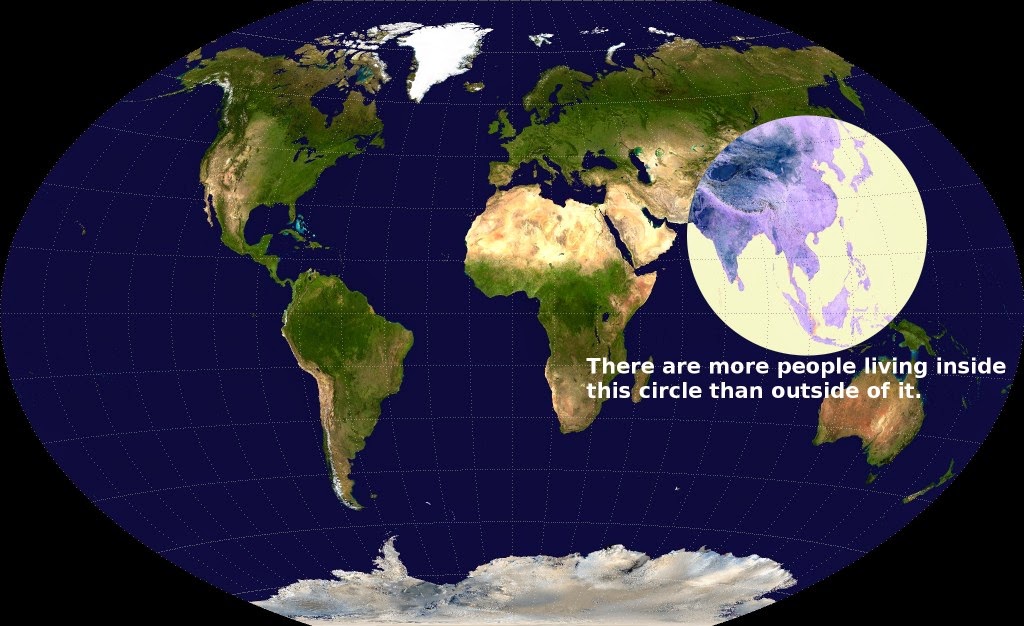It's easy to get sidetracked from what is most important. Not only is our society an extremely busy one, but so is the church. Amidst this busyness, it is quite easy to take our eyes off what is most critical. When it comes to Christianity, the most critical thing is the Gospel itself.
The Gospel at its heart is based in the grace of God. We must never forget this. In our man-centered culture, the tendency is to elevate humanity to the position of most importance. This can and does seep slowly into the church. This in turn even impacts what Christians believe about the Gospel. In particular, I'm concerned about two growing segments within the church as they relate to the Gospel. Albeit in different ways, both groups stress man's work as being important to the Gospel. Both groups are wrong.
The first group I'm referring to is those Christians who act as if man's response of faith is something that he himself instigates (some call this group "Arminian," but I'm going to avoid that term because it simply leads to arguments). These folks believe that God bestows a certain amount of grace upon every human, but that it is up to said human to respond in faith of his own doing. They believe faith precedes regeneration. What this does is turn the faith response into a work. In essence, these believers are saying that a spiritually dead man can repent and believe while still spiritually dead. Not only does it make no sense theologically, but it also is patently false. Worst, it denies that grace is enough for salvation.
The second group is even more problematic. These folks, who may or may not actually be Christ-followers, deny that the atoning work of Christ is necessary for salvation. Rather, they say that Jesus' work on the cross was an act on his part to set an example of living sacrificially for others. While it is undoubtedly that, it is so much more. What Christ did on the cross caused the great transaction to occur: my sin for his perfection. This great exchange is absolutely necessary for salvation. If it is not, then salvation once again becomes a work of mankind as he wills himself to God. In order to deny that the atonement is necessary, you have to reject a great portion of the bible. In fact, the entire sacrificial system of the Old Testament makes no sense when you hold this position.
The above two beliefs are just two of many variants that deny that God's grace is sufficient. As Christ's body, we must reject any and all of these positions. God's grace is not only what makes Christianity unique, it also makes salvation possible. If knowing God through Christ depended on our works, then no one would ever come to salvation. It is God's amazing grace, and it alone, that both makes salvation possible and causes it to occur.
Let's keep this issue front and center. God is honored when we emphasize his grace.
The Gospel at its heart is based in the grace of God. We must never forget this. In our man-centered culture, the tendency is to elevate humanity to the position of most importance. This can and does seep slowly into the church. This in turn even impacts what Christians believe about the Gospel. In particular, I'm concerned about two growing segments within the church as they relate to the Gospel. Albeit in different ways, both groups stress man's work as being important to the Gospel. Both groups are wrong.
The first group I'm referring to is those Christians who act as if man's response of faith is something that he himself instigates (some call this group "Arminian," but I'm going to avoid that term because it simply leads to arguments). These folks believe that God bestows a certain amount of grace upon every human, but that it is up to said human to respond in faith of his own doing. They believe faith precedes regeneration. What this does is turn the faith response into a work. In essence, these believers are saying that a spiritually dead man can repent and believe while still spiritually dead. Not only does it make no sense theologically, but it also is patently false. Worst, it denies that grace is enough for salvation.
The second group is even more problematic. These folks, who may or may not actually be Christ-followers, deny that the atoning work of Christ is necessary for salvation. Rather, they say that Jesus' work on the cross was an act on his part to set an example of living sacrificially for others. While it is undoubtedly that, it is so much more. What Christ did on the cross caused the great transaction to occur: my sin for his perfection. This great exchange is absolutely necessary for salvation. If it is not, then salvation once again becomes a work of mankind as he wills himself to God. In order to deny that the atonement is necessary, you have to reject a great portion of the bible. In fact, the entire sacrificial system of the Old Testament makes no sense when you hold this position.
The above two beliefs are just two of many variants that deny that God's grace is sufficient. As Christ's body, we must reject any and all of these positions. God's grace is not only what makes Christianity unique, it also makes salvation possible. If knowing God through Christ depended on our works, then no one would ever come to salvation. It is God's amazing grace, and it alone, that both makes salvation possible and causes it to occur.
Let's keep this issue front and center. God is honored when we emphasize his grace.








